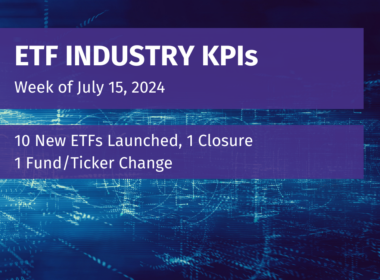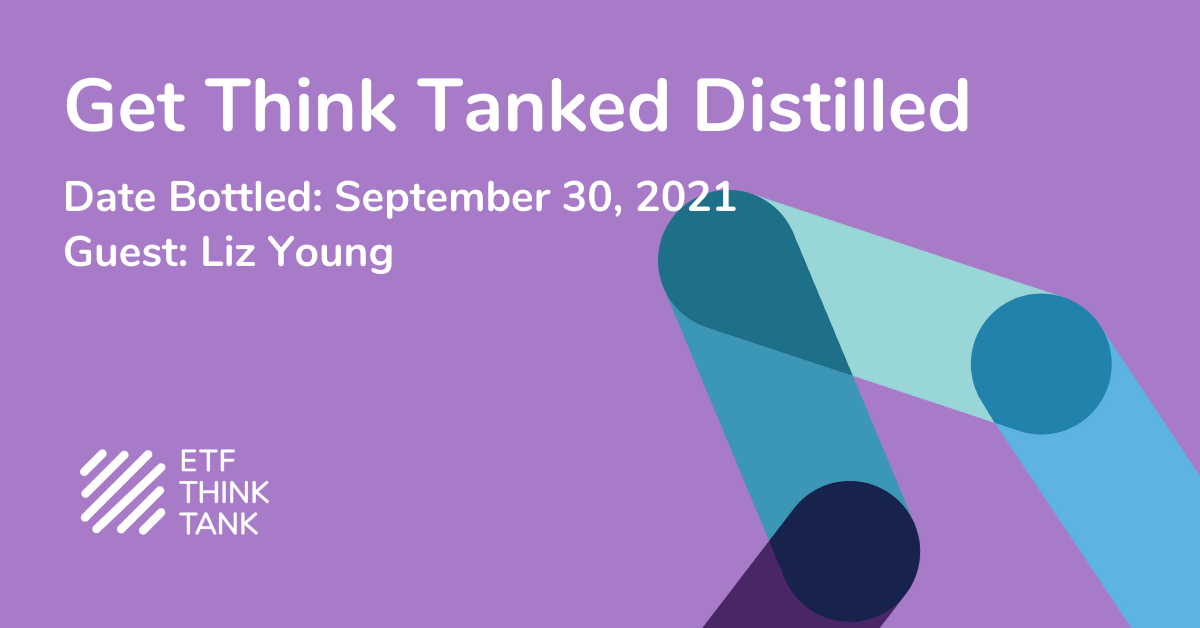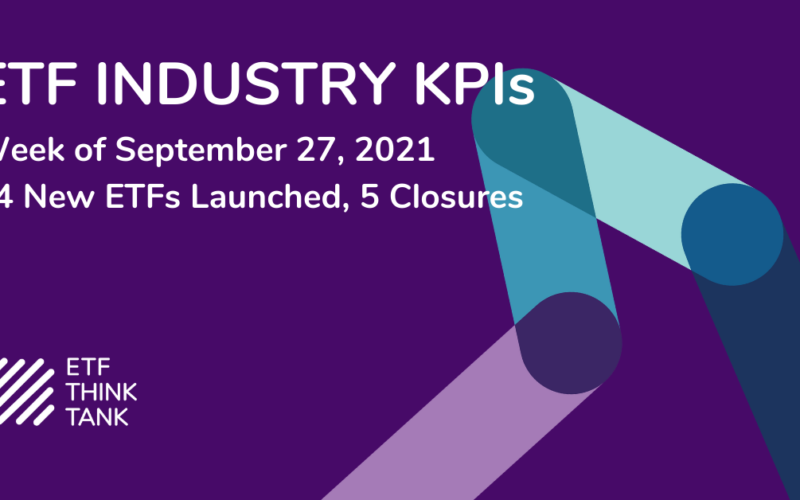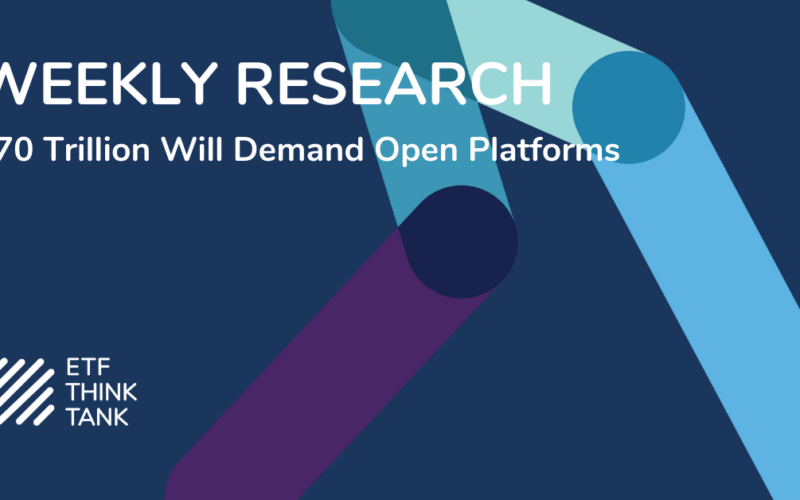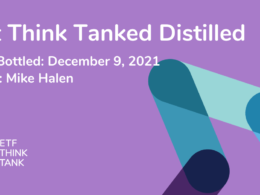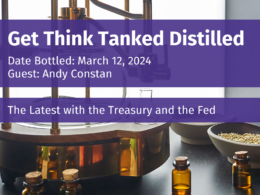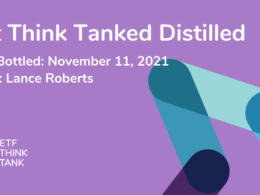SoFi, which was founded a decade ago as a company focused on the student loan market, has since expanded into mortgages, personal loans, credit cards and investments, including ETFs, stocks, cryptocurrencies and robo-advisory. Liz Young is the Head of Investment Strategy at SoFi and stopped by the ETF Think Tank to offer up her macro views on the economy and the markets.
SoFi’s business model appeals to a newer and less affluent client base, so how does the company try to educate new investors? Young explains that one of SoFi’s goals is to make sure people are cutting through the information that’s out there and focusing on what’s really important. Using the Evergrande situation in China as an example, she focused less on the initial overreaction comparing it to the Lehman bankruptcy and shifted the narrative towards why the market reacted the way it did. Like the 2016 election result and the Brexit vote, the markets hated it for a day or two, got over it really fast and then moved on. One of her philosophies is that “a pullback or drawdown absent a recession is a buying opportunity”.
Young is concerned about how newer investors haven’t yet experienced a protracted recession or bear market. Most investors define risk as losing money, but people newer to the markets might define risk as making less than 10%. The new investor realizes that drawdowns are possible, but they haven’t really felt it and we don’t know how they might react. The current definition of a bull market is probably getting inflated.
The topic of inflation and global supply chain issues is raised and Young emphasizes that she is not buying the “transitory” story. She believes that inflation probably begins relaxing below the 5% level but does not think it goes back down to 1.5%. If a company pushes up prices on goods and services, those will stick. They’re not going to lower prices again once customers begin paying those higher prices. With wages rising and consumers still sitting on a lot of cash, there’s a chance that spending and inflation could rise again. The question is will it rise enough that the central bank needs to do something to contain it.
Speaking of the central bank, Young says she thinks the Fed is in a really bad spot right now. It has helped create a “too big to fail” culture and that has impacted expectations of how the markets will perform. The Fed has succeeded in signaling by clearly telegraphing the steps it’s planning on taking, but the execution could cause problems if growth and inflation get out of balance. If growth stagnates and inflation runs hot, the Fed may have to try to solve for one and just let the other be a problem. The tapering doesn’t scare her as much as the idea that it’s going to have to do something sooner than expected on rates. There’s a good chance the Fed may need to speed up the taper, so they don’t have to shock the market with an earlier rate hike.
Some other key takeaways:
- You can do all the research in the world, but you get some of your best ideas from other people. It can be dangerous if you’re just following people, but there can be some value in learning from different perspectives.
- The younger investor crowd isn’t all that different from the older generation. There are things, such as student loan debt, that are different, but this group still wants to buy and furnish a house, buy a car, and financially plan for a family and retirement. The biggest difference is how they want to work and spend their time professionally. Startups, tech companies and small businesses are more attractive.
- The pandemic forced the marriage between the sector and technology to speed up. That probably won’t go away and the companies that perform best are the ones that are the quickest to adapt. If you’re a brick-and-mortar business that’s failed to keep up with the shift to online commerce, you’re probably struggling.
- The current generation skews smarter. They’re probably going to be prone to more bubbles (debt, assets), but Young doesn’t know if that makes them better off. One of the most advantageous things is that they’re getting involved in investing a lot earlier than those before them. In order to build wealth, they need to invest.
This week our guest will be Douglas Boneparth, joining us to discuss DeFi, inflation, and valuations. Sign up here.
Disclosure
All investments involve risk, including possible loss of principal.
The information provided here is for financial professionals only and should not be considered an individualized recommendation or personalized investment advice. The investment strategies mentioned here may not be suitable for everyone. Each investor needs to review an investment strategy for his or her own particular situation before making any investment decision.
All expressions of opinion are subject to change without notice in reaction to shifting market conditions. Data contained herein from third party providers is obtained from what are considered reliable sources. However, its accuracy, completeness or reliability cannot be guaranteed.
Examples provided are for illustrative purposes only and not intended to be reflective of results you can expect to achieve.
The value of investments and the income from them can go down as well as up and investors may not get back the amounts originally invested, and can be affected by changes in interest rates, in exchange rates, general market conditions, political, social and economic developments and other variable factors. Investment involves risks including but not limited to, possible delays in payments and loss of income or capital. Neither Toroso nor any of its affiliates guarantees any rate of return or the return of capital invested. This commentary material is available for informational purposes only and nothing herein constitutes an offer to sell or a solicitation of an offer to buy any security and nothing herein should be construed as such. All investment strategies and investments involve risk of loss, including the possible loss of all amounts invested, and nothing herein should be construed as a guarantee of any specific outcome or profit. While we have gathered the information presented herein from sources that we believe to be reliable, we cannot guarantee the accuracy or completeness of the information presented and the information presented should not be relied upon as such. Any opinions expressed herein are our opinions and are current only as of the date of distribution, and are subject to change without notice. We disclaim any obligation to provide revised opinions in the event of changed circumstances.
The information in this material is confidential and proprietary and may not be used other than by the intended user. Neither Toroso or its affiliates or any of their officers or employees of Toroso accepts any liability whatsoever for any loss arising from any use of this material or its contents. This material may not be reproduced, distributed or published without prior written permission from Toroso. Distribution of this material may be restricted in certain jurisdictions. Any persons coming into possession of this material should seek advice for details of and observe such restrictions (if any).



